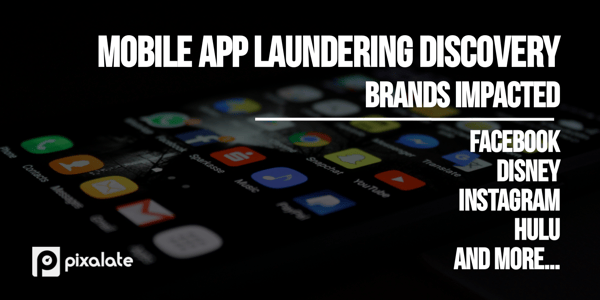
This week's review of ad fraud and quality in the digital advertising space.

In the wake of our MegaCast app ad fraud discovery, we continue to explore the impact of this apparent widespread app laundering and automatic activity. Based on conservative estimates, we believe brands were losing over $75 million per year to this alleged ad fraud activity. Upon further research into the activity, Pixalate was able to identify and verify some of the exact brands that we believe were impacted by this event, including Facebook, Disney, Instagram, Hulu, Volvo, and more. Click here to download our whitepaper or learn more in MediaPost.

According to eMarketer, citing a recent survey from TrustArc and Dimensional Research, "[a]bout a quarter of respondents said their new data policies and procedures and cookie management protocols are fully compliant with the new regulations ... but just 13% said that their vendor risk management programs were GDPR compliant." Working with vendors that are not GDPR compliant could lead to GDPR fines, eMarketer notes. (Note: Pixalate is GDPR compliant.)

"The Interactive Advertising Bureau's Tech Lab on Tuesday revealed details of a Blockchain Working Group pilot program that is designed to answer [how blockchain would be best applied to online advertising]," wrote Advertising Age. "But could it add another so-called ad-tech tax to the equation in the process?" Advertising Age asked, noting that "[s]uch services certainly won't be free."

Salesforce this week agreed to acquire Datorama. AdExchanger wrote of the deal: "Both Salesforce and its competitor Oracle have been on a spree acquiring data companies. Oracle started first, by snapping up BlueKai, AddThis, Datalogix, Moat and Grapeshot, and Salesforce has gone down its own path." AdExchanger added, "While Oracle has a data marketplace and seems to be focusing on data analytics, Salesforce is dead set on managing data integration."

The Canadian Radio-television and Telecommunications Commission (CRTC) recently "took enforcement action to combat the installation of malicious software through online ads for the first time under Canada’s anti-spam law." The CRTC hit two companies with a combined $250,000 in penalties for "allegedly aiding in the installation of malicious computer programs (also known as malware) through the distribution of online advertising."
Sign up for our blog to stay updated with new stats, trends, and analysis of digital ad fraud.
*By entering your email address and clicking Subscribe, you are agreeing to our Terms of Use and Privacy Policy.
These Stories on Weekly Recaps
*By entering your email address and clicking Subscribe, you are agreeing to our Terms of Use and Privacy Policy.

Disclaimer: The content of this page reflects Pixalate’s opinions with respect to the factors that Pixalate believes can be useful to the digital media industry. Any proprietary data shared is grounded in Pixalate’s proprietary technology and analytics, which Pixalate is continuously evaluating and updating. Any references to outside sources should not be construed as endorsements. Pixalate’s opinions are just that - opinion, not facts or guarantees.
Per the MRC, “'Fraud' is not intended to represent fraud as defined in various laws, statutes and ordinances or as conventionally used in U.S. Court or other legal proceedings, but rather a custom definition strictly for advertising measurement purposes. Also per the MRC, “‘Invalid Traffic’ is defined generally as traffic that does not meet certain ad serving quality or completeness criteria, or otherwise does not represent legitimate ad traffic that should be included in measurement counts. Among the reasons why ad traffic may be deemed invalid is it is a result of non-human traffic (spiders, bots, etc.), or activity designed to produce fraudulent traffic.”

